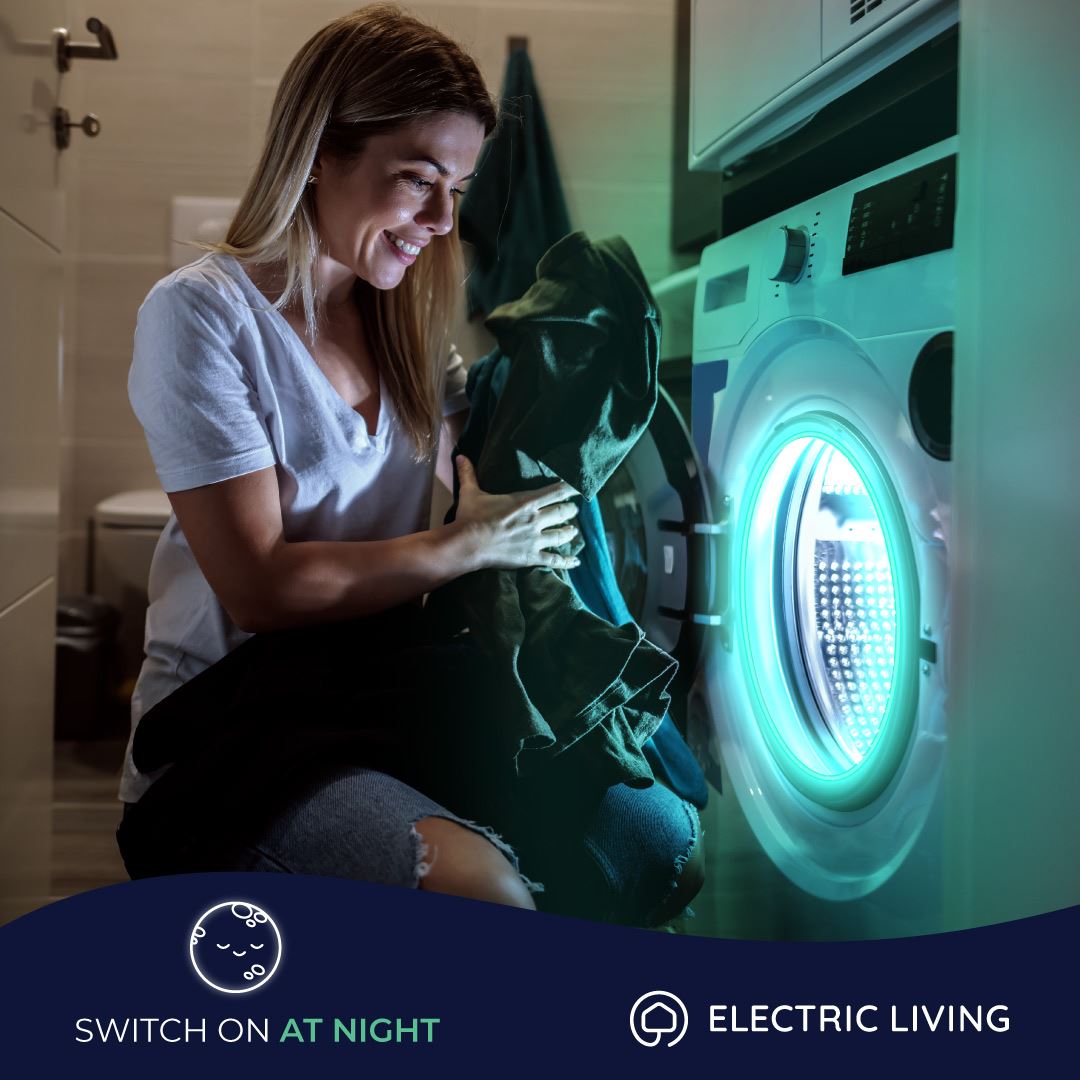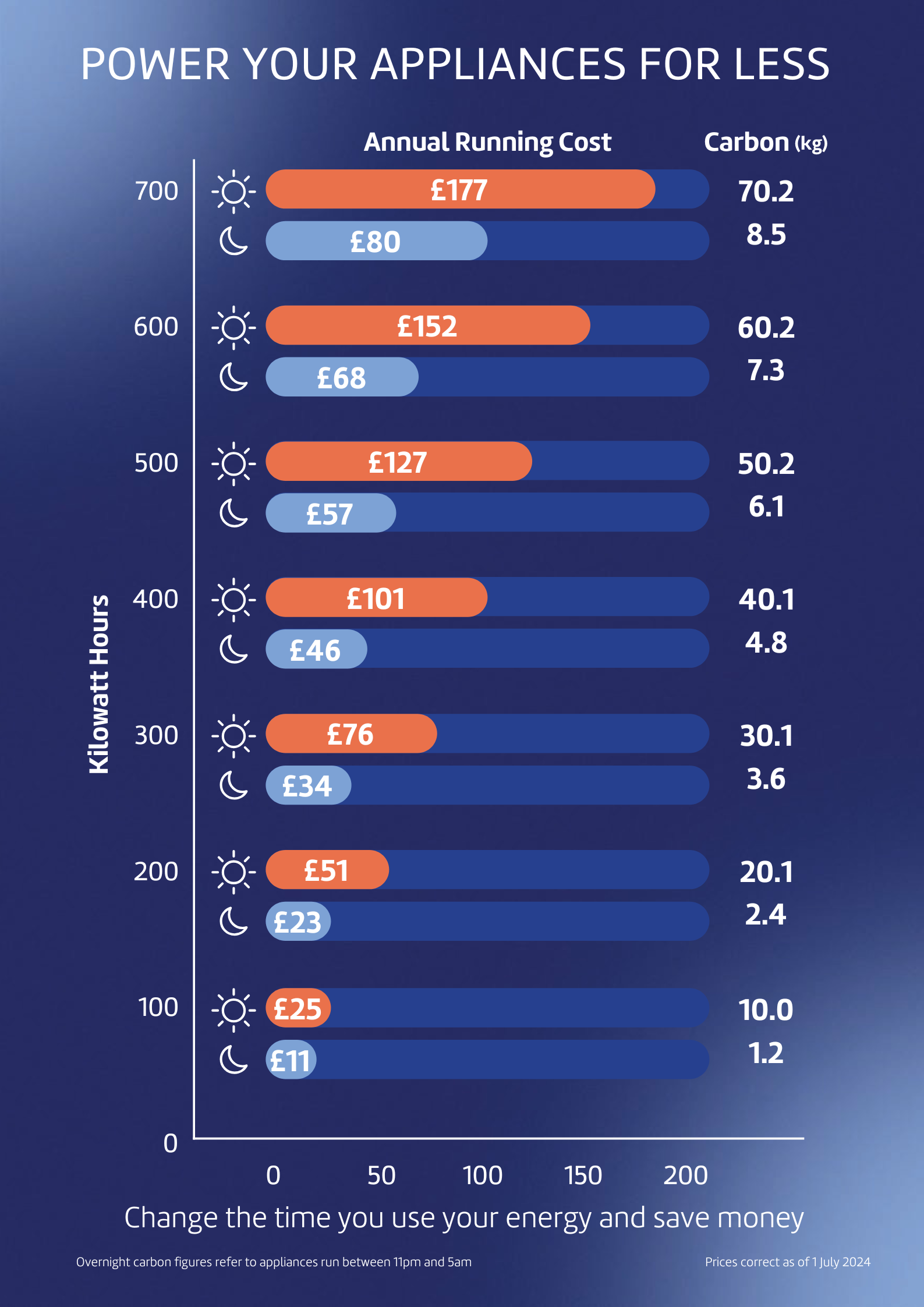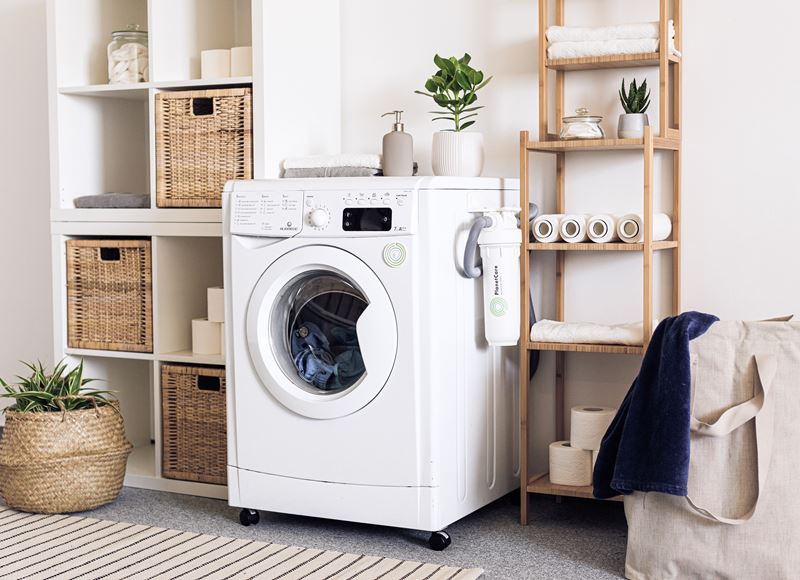How much does it cost to run?

Energy Calculator
All appliances have a rating which indicates how much energy it uses. This is usually found on the base of the appliance or just inside the door on larger items, either written in Watts (W) or Kilowatts (kW). If it is in kW, multiply the figure by 1,000 and then enter into the calculator.
The age of your appliances may impact how much they cost you to run, therefore please be as accurate as possible with how long your appliances run for.
Your statement will tell you what type of tariff you are on. Click here to see where to find this.
Here are some example ratings for typical appliances used in the home.
| Dishwasher | 1500 |
| Tumble Dryer | 2500 |
| Washing Machine | 2500 |
See more appliance ratings here
*This calculator cannot be used for heating systems or appliances that use our Superheat Tariff.
Results reflect the updated tariffs.
-
Energy Calculator
Normal Rate
£{{economyStd}}
Cost Per Week
£{{economyStdWeek}}
Total cost over a 12 week billing period
£{{economyStdBill}}
Low Rate
£{{economyLow}}
Cost Per Week
£{{economyLowWeek}}
Total cost over a 12 week billing period
£{{economyLowBill}}
Standard Rate
£{{standard}}
Cost Per Week
£{{standardWeek}}
Total cost over a 12 week billing period
£{{standardBill}}
Annual Running Cost
This snapshot gives you an overview of how much your appliances could cost to run and how much carbon they might produce over a year
As of July 2024

Run your appliances more cheaply with 100% renewable energy
Save money while helping our planet. Set a timer on some appliances such as washing machines, dishwashers and hot water thermostats to come on between 11pm and 5am as the power station is not used to top up our electricity during this quiet, off-peak period.


Ever heard of something that takes longer being cheaper to run? That's often how the Eco Mode on washing machines and dishwashers work.
Wash modes are a mix of three different things
- temperature
- time
- water
Eco Modes usually use less water and a lower temperature than most other settings such as the 1-hour quick wash. Heating up water quickly uses the most energy, for example this is around 90% of a washing machine’s electricity consumption.
A longer wash means the water doesn’t have to be so hot, which actually saves you money. And if you run your washing machine or dishwasher during your overnight low-rate times, the extra time it takes shouldn't be as much of an issue.
Less hot water means lower electricity bills, and a lower water bill.
So set the timers to start between 11pm and 5am for an extra sustainable sparkle that's also cheaper to run (if you're on the Super Economy 12 Tariff)







